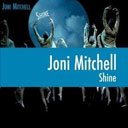Maybe appropriately, as she is the epitome of “grown-up” music, I didn’t get into Joni until my 30s. Her early albums had been in my parents’ collection but I’d never really paid much heed – until the boho folk revival of the early 2000s had me reassessing them along with their Bert Jansch and Incredible String Band LPs. But it was the music-blogging explosion of the same time, with crate diggers sharing rarities and bootlegs, that really turned my head. That’s how I found the acoustic demos for The Hissing of Summer Lawns – a record whose jazz-fusion and vaudevillian aspects had previously left me cold – and it all fell together.
Listening to these bare-bones sketches, I suddenly understood how the sonic and harmonic ambition of that record wasn’t surface-level affectation but written into the fabric of the songs themselves from the start. Hissing’s complexity wasn’t just 1970s excess, it was a masterpiece of word, sound and thought in Swiss-watch alignment. As I listened to her other albums again in this context, the totality of Joni’s achievement, her auteur genius, hit me anew.
There was the fact she’d produced every single one of her records, and done most of the artwork to boot. Her unique tunings – “Joni’s weird chords” as she self-effacingly called them – which by some accounts came from childhood polio leaving her unable to form normal guitar chord shapes. The impeccable crafting of everything from the simplest rhyme (“cafes / dance craze”), to condensed stories that make Raymond Carver look loose, to grand themes and motifs weaving through her work over years. The folding of jazz, country and the rest into something unmistakeably her own. The subversion of the feminine archetypes foisted on her. Rootsiness and urbanity somehow becoming one. The heartbreak, the stoicism, the wit. Everything.
Becoming a militant Joni fan, though, came later still. That happened about a decade later when, researching an article, I started to look at how much had been written about different figures of the 60s generation. Obviously there are whole libraries on Dylan, stacks on Neil Young, but only a comparative smattering on Joni. The similarly poetic, louche and Canadian Leonard Cohen has near to five times as many books written about him as she does. No shade on Cohen, but if anyone wants to argue that he is five times as important and influential a writer, artist, musician and cultural figure, I will fight them in a car park.
I’d never been much of a one for the white rock canon anyway, but this illustration of how much structural misogyny decides how that canon is constituted really hit home hard. Seeing narratives that talked about her in terms of the self-indulgent, domesticated 70s “me generation”, always bracketing her with other female singers, was just too much. As I noted how Joni effortlessly outclasses her hairy male peers – the very gods of Dad Rock Valhalla – in Scorsese’s Rolling Thunder Revue, and read about Robert Plant being reduced to a speechless wreck in her presence, a real fury built.
But then, thankfully for my sanity, something else clicked. Discovering Prince was an obsessive Joni fan – covering her, writing her into his lyrics, unsuccessfully pitching songs to her – blew the whole issue out of the water. Who needs the white rock canon, anyway? Not Joni, for one. Given she was as close musically and personally to Charles Mingus and Herbie Hancock as to Bob Dylan or Carly Simon, isn’t it great that her lineage can be traced through Prince, Chaka Khan and Kate Bush to Outkast, Frank Ocean, James Blake? Isn’t it great that her real musical legacy is at least as much Beatrice Dillon – maker of one of 2020’s greatest electronic records and avowed Joni fan – as it is Taylor Swift?
That’s when resentment turned into resolve. I was just starting work on what became the book Bass, Mids, Tops: An Oral History of Soundsystem Culture – and my vague ideas about charting unsung connections suddenly ceased to be abstract. Doing justice to the musicians we love is not just about shouting about their individual greatness, it’s about context: reporting and reinforcing every line of influence outside the established narratives matters. Being a fan of Joni wasn’t just about her. It opened up a different way of seeing history, it illuminated past and present music in whole new ways, it revealed work that needs to be done.
There’s work to do in being a Joni fan, too: appreciating her 80s work is a challenge, and, as archives of early songs open up, there are a lot of versions of The Circle Game to plough through. But from sparks of delight to having the whole sweep of history rewired, it’s worth it, even if you have to admit you’ve finally grown up.










